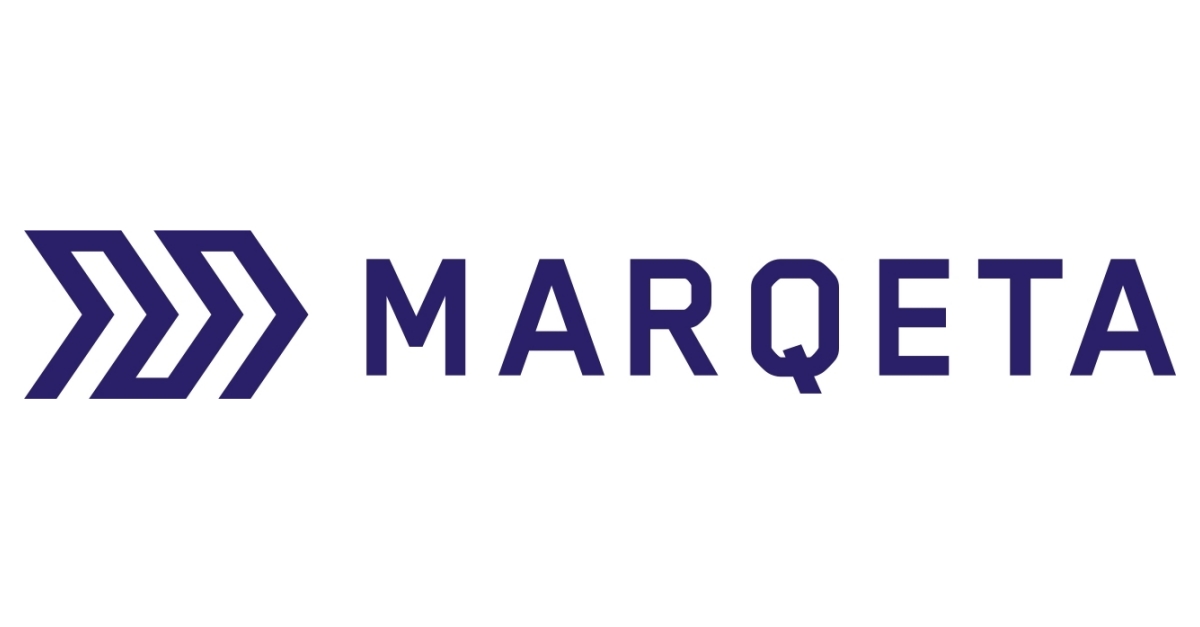Published
- 09:00 am

Broadridge Financial Solutions, Inc. (NYSE:BR), a global Fintech leader, today announced that Britannia Global Markets, a bespoke, all-encompassing brokerage house and subsidiary of Britannia Financial Group, has selected Broadridge to streamline its post-trade processing for its international securities business including cash equities, fixed income and repurchase agreements.
Broadridge’s solution will provide Britannia Global Markets with a strategic, multi-market platform with the inherent scale and agility to support future growth and respond to regulatory requirements. It will be deployed as an advanced, SaaS-based solution that enables the firm to benefit from a mutualised, resilient service that mitigates risk and underpins a superior client service.
“With Broadridge as our partner, we will have a firm foundation for growth as we expand our securities business and deliver continued value to our clients," said Ian Johnson, Chief Executive Officer of Britannia Global Markets. "Broadridge’s solution, backed by its high service standards and capital markets expertise, will help advance our operational efficiency and enable superior process controls.”
“It is a privilege to have been selected by Britannia Global Markets as they continue to advance their services for international securities,” said Danny Green, General Manager for Post-Trade Solutions, Broadridge International. “We are fully committed to helping them to drive growth, optimise their operations and navigate the challenges of risk and compliance.”
Related News
- 09:00 am

Technical body EMVCo has launched a pilot testing programme to evaluate consumer mobile devices for contactless payment acceptance. The Early Adopter Programme is open to vendors for functional evaluation of smartphones and tablets that can be used by merchants to take payments, without the need for added hardware, such as a dongle.
EMVCo has introduced the Early Adopter Programme to address industry requests to support merchants and acquirers that want to use commercial-off-the-shelf (COTS) consumer mobile devices to accept contactless payments.
The programme is an interim step in a longer-term EMVCo initiative exploring how to adapt the terminal testing programme and EMV® Contactless Specifications for COTS mobile devices in general to support the delivery of a consistent payment experience. EMVCo Associates and Subscribers, comprised of banks, vendors, and merchants, amongst others, are working with EMVCo on this effort. This includes collaboration via dedicated Special Interest Meetings (SIM), the first of which took place earlier this year.
“While COTS devices have limitations due to integration constraints, EMVCo believes that such devices could still provide a satisfactory user experience for some specific use cases. The goal of EMVCo’s initiative is to enable a good consumer experience when mobile devices are used for contactless payment acceptance,” explains Junya Tanaka, Chair of the EMVCo Executive Committee. “We are pleased to take the first step towards this with the Early Adopter Programme that meets merchant and acquirer needs for testing processes to support the use of COTS mobile devices.”
The functional evaluation processes available through the Early Adopter Programme will evaluate the performance of COTS consumer mobile devices with built-in contactless capability (with no additional hardware needed) based on current interoperability requirements related to read range and user experience needs, as outlined in the EMV® Level 1 Specifications for Payment Systems-EMV® Contactless Interface Specification, v3.0.
Based on these criteria, an evaluation score will be made available to the vendor after the device evaluation is completed. Mobile vendors can then use these scores to refine their product designs and to demonstrate the performance of their devices to acquirers, merchants, payment systems and other interested parties.
The programme is open now to mobile vendors to submit their devices for evaluation. To participate, interested parties will need to complete the Early Adopter Programme Agreement and be approved for participation. Once approved they can submit their device(s) for evaluation by EMVCo labs.
To learn more read the COTS Early Adopter Programme FAQs.
Related News
- 07:00 am

Marqeta, the global modern card issuing platform, today released a report that examines how banks intend to change their strategies in response to the COVID-19 pandemic. According to the findings, COVID-19 has had a significant impact on almost all (96%) European banks, with over three-quarters (78%) planning to change their future banking strategy to adapt to changes in consumer behaviour, such as the accelerated adoption of digital banking services and cashless payments.
The study of 200 banking executives found that, as a result of growing demand for digital services, 80% of banks have accelerated their plans to digitally transform. Banks also predicted that digital transformation projects will need to be delivered in two-thirds (69%) of the time, with 89% saying that the COVID-19 pandemic has drastically increased the speed of change in banking from years to months. The study also found that:
- Three quarters (75%) of banks “weren’t prepared” for the scale of change that COVID-19 has triggered in consumer behaviour.
- 88% of banks were overwhelmed by the demand for online and mobile banking during the COVID-19 pandemic.
- Since the start of the global COVID-19 pandemic, banks say that digitally transforming to improve the online and mobile banking experience (76%), offering new, differentiated payments services (70%), investing in security and anti-fraud solutions (70%) and modernising core banking and payment platforms (66%) have all increased in priority.
“The future of banking has come around quicker than most expected. The onset of COVID-19 accelerated many trends in consumer behaviour, with more people moving away from cash and adopting digital services such as online and mobile banking,” comments Ian Johnson, Managing Director Europe at Marqeta. “These are all trends that were set to slowly change over time and banks would gradually transform to adapt. But COVID-19 has drastically moved up the timescales, with 36% of banks saying COVID-19 has “opened up the floodgates” to modernising core banking and payment systems. Attitudes to modernisation have clearly changed. Banks are now speeding up efforts to transform because they know that the winners of the next age of banking will be determined by who can best adjust their strategy to adapt to the new normal.”
Future banking strategies are changing
Over three quarters (76%) of banks say that the impact of COVID-19 has meant that the business models they used to follow have changed forever. As part of their future banking strategy, more than half (54%) of banks plan to reduce their physical branch network. Banks are also set to increase the number of digital services offered in branch (72%), the provision of specialist payment services (68%), their investment in digital banking and services (66%) and their digital innovation capabilities (61%).
As a result of the COVID-19 pandemic, 92% of banks say that innovation has become more important than ever. When it comes to innovation, banks say they need to:
- Improve their use of data analytics to gain insights into customers that will allow them to make lending decisions in real-time (91%)
- Improve their technology capabilities to better use contextual data to make judgements on fraud as transactions are being processed (91%)
- Implement technology and processes that enable them to control what loans are spent on (90%)
Banks have to change quickly, or risk falling behind.
With COVID-19 driving a broad shift in consumer behaviors and adoption of new technology, all banks surveyed acknowledged plans to increase investment in tokenized card technology and modern card programs and said that the dangers of not being able to keep up were real. A significant portion (38%) said that without innovation in payments they would be unable to scale their existing services to offer new features and capabilities, while more than a third (34%) said they feared losing market share to competitors.
“COVID-19 has ushered in a new age of digital banking. Banks need to ensure they are prepared to adapt for this world, and many are set to double down on digital services and capabilities. But to do this, they need to overhaul legacy technologies that don’t provide the agility required to respond to the needs of the market. To adapt and thrive, traditional banks need to be supported with modern core banking and payment platforms that can support the requirement to digitally transform and provide the flexibility needed for their future banking strategies,” concludes Johnson.
To download part 1 of Marqeta’s COVID-19 European Banking Survey: Will COVID-19 be a watershed moment for banking?, please visit: https://www.marqeta.com/resources/european-banking-survey.
Related News
- 06:00 am

Auriga, a leading supplier of technological solutions for the omnichannel banking and payments industries, today announced a new partnership with SprintQuip, an Australia-based cash handling specialist to distribute Auriga’s omnichannel banking software suite WinWebServer (WWS) throughout the Australasia region.
The WWS software suite is a complete, modular system for the management of omnichannel banking services via mobile, tablets, PCs, kiosks and ATMs and more. Its integral components include WWS ATM and WWS Branch, which contain a predictive feature that helps banks to accurately forecast how much cash is needed in each ATM, and WWS Mobile, which facilitates fast and secure mobile payments. Auriga’s innovative suite of solutions assists financial services providers to enhance the customer experience and optimise costs management.
SprintQuip will sell Auriga’s WWS software solutions in Singapore, Australia, New Zealand as well as in Papua New Guinea and the Pacific Islands of Fiji, Samoa, Tonga and the Cook Islands.
Thanks to SprintQuip’s market presence and expertise, combined with the advanced technological software solution provided by Auriga, the partnership will help organisations in the Australasian banking and finance market deliver greater operational efficiency, improved cost effectiveness and superior customer experience.
Vincenzo Fiore, CEO at Auriga, comments: “We are delighted to be partnering with SprintQuip as part of our next phase of growth in Australasia. SprintQuip’s in-depth knowledge of the market in Australia and surrounding areas and specialism in cash handling solutions makes them the ideal partner for the promotion and distribution of the WWS software suite and modules. We look forward to working together to help banks in the region improve efficiency, deliver superior customer experience and improve profitability.”
Louis Madeley, Asia General Manager at SprintQuip, adds: “We are delighted to have been selected to be a partner with Auriga. The WWS software suite offers tremendous capability and value for the Banks in our markets. With the power of WWS, the technical support from Auriga with the local knowledge of SprintQuip, we anticipate helping Banks and Financial institutions improve speed of change in the rapidly evolving payments space.”
Related News
- 08:00 am

Red Hat, Inc., the world's leading provider of open source solutions, today announced a step forward in enterprise-wide IT automation with the integration of Red Hat Ansible Automation Platform and Red Hat Advanced Cluster Management for Kubernetes. Designed to break down automation barriers between traditional and cloud-native infrastructure, this integration is intended to help drive application modernization for IT environments breaking down the workflow and development silos between traditional servers and virtual machines and cloud-native clusters.
Ansible Automation Platform1 and Red Hat OpenShift2 are both leaders in The Forrester Wave™ and are built on leading open source projects in Ansible and Kubernetes, respectively. Launched in July 2020, Red Hat Advanced Cluster Management helps enterprises better manage and scale OpenShift clusters across the hybrid cloud, lending management muscle to the industry’s leading enterprise Kubernetes platform. Now, Ansible Automation Platform and Red Hat Advanced Cluster Management can work hand-in-hand, enabling enterprises to take advantage of the technologies already in use and refine them for a cloud-native future.
Connecting traditional and hybrid cloud environments with modern automation tools
Application modernization is among today’s top IT priorities. According to Gartner, “by 2022, only 40% of container management software offerings available in 2019 will still be competitive/or exist, causing many current product decisions to be tactical3.” Red Hat OpenShift provides a powerful, scalable platform for this transformation. Many organizations, however, cannot afford to simply leave existing IT systems behind, given the investments and critical workloads based on these resources. With this in mind, many IT teams are forced to split technology stacks and silo teams to address these disparate workflows, each requiring separate tools and strategies, leading to growing complexity and friction.
The integration between Ansible Automation Platform and Red Hat Advanced Cluster Management aims to address these pain points in enterprise IT organizations by streamlining the toolsets and “handoffs” between traditional and cloud-native technologies. Red Hat Advanced Cluster Management addresses the need for cloud-native management and monitoring. When application level or traditional IT workflows are needed, it acts as a control plane across Red Hat OpenShift clusters to trigger Ansible Automation Platform capabilities, such as deploying system updates, load balancers, server resources and more. The result is a single workflow to manage complex hybrid cloud environments without forcing organizations to choose between their IT needs in the here and now and those that they may require for a digital future.
As part of the integration between the two technologies, Red Hat takes advantage of OpenShift’s Kubernetes Operator foundation to further IT automation in hybrid cloud environments. Kubernetes Operators make it easier to run applications at-scale across OpenShift deployments, wherever they may exist, and with a Resource Operator for Red Hat Advanced Cluster Management, the technology can call on Ansible Automation Platform to execute tasks more efficiently outside of the Kubernetes cluster.
Joe Fitzgerald, vice president, Management, Red Hat, said: "By integrating Red Hat OpenShift with Ansible Automation Platform, enterprises can leverage Ansible for infrastructure management and application deployment. We believe Ansible has become a de facto automation standard, and Red Hat provides a tremendous amount of ready-to-use Ansible automation that spans domains and is curated, certified and supported."
Mary Johnston Turner, research vice president, Cloud Management at IDC, Shared Cross-Cloud Management Control Planes Become Enterprise Priority, comments: "Interest in consistent cross-cloud management and visibility is rapidly increasing as enterprises move more workloads into hybrid and multicloud infrastructure platforms, including both VM and container-based environments. A significant majority of enterprise cloud infrastructure management decision makers report that it is very important to have management tools and capabilities that span across multiple cloud environments, including public, private, hosted and edge locations. The addition of automation functionalities helps further extend effective management across the hybrid cloud."
1. Source: Forrester Consulting, “The Forrester Wave™: Infrastructure Automation Platforms, Q3 2020,” Chris Gardner with Glenn O'Donnell, Robert Perdoni and Diane Lynch, August 10, 2020
2. Source: Forrester Consulting, “The Forrester Wave™: Multicloud Container Development Platforms, Q3 2020,” Dave Bartoletti, Charlie Dai with Lauren Nelson, Duncan Dietz, Han Bao and Bill Nagel, September 15, 2020
3. Source: Gartner, “Market Guide for Container Management,” Dennis Smith, October 10, 2019
Related News
- 02:00 am

A fast growing European identity verification provider is reporting significant UK growth, increasing its headcount to 10 and growing its order intake by 1400% since it launched in London and Manchester less than 12 months ago.
IDnow (www.idnow.io) has made a number of significant hires from within the identity verification sector including Jo Schofield, Director of Customer Excellence, Ana Lucia Salazar, Sales Manager and Razia Ali, Account Manager. The recruitment drive brings IDnow’s UK headcount to 10.
With COVID-19 accelerating the move to digital, IDnow has seen a substantial rise in non-outbound enquiries, with the firm reporting a 249% increase over the past 12 months and order intakes rising by 1400%. This has been a key factor in the expansion of the UK team.
Roger Tyrzyk, Head of Sales UK/I at IDnow, comments: “In the face of a continuing global pandemic, digital solutions are needed now more than ever before. As a result, we are seeing increasing demand for our products and services as businesses seek ways to deliver a safe and secure online experience for their customers from a trusted partner.
“We see the UK as a key market for achieving our overall global expansion plans, and as such, are investing heavily in our people, products and services. This growth and investment has enabled us to recruit some of the most knowledgeable and creative minds in the industry, which is testament to the value we see in our UK presence. Our 10-strong team will enable us to deliver our ambitious plans to become a leading identity verification player, both here in the UK and worldwide.”
Demand for secure verification in online financial transactions has grown significantly in response to rising levels of online financial crime, accelerated by COVID-19 restrictions. Headquartered in Munich, Germany, IDnow’s unique hybrid approach to identity verification, which combines AI-based technology with human identity experts, operates at the strictest and most secure levels - BaFin. This continues to drive demand for its products as firms seek unmanipulable solutions in the fight to protect customers’ digital identities and combat fraud.
IDnow has locations around the world, including Canary Wharf in London and most recently, it has established a presence in Manchester.
Its commitment to Britain is further supported by its recent confirmation that it is becoming a UK limited company. “Following continued growth and investment in the UK, becoming a Limited company was the natural next step for IDnow and reaffirms our commitment to the country,” concluded Roger.
Related News
- 04:00 am

Independent insurance broker, Thompson Insurance, has future-proofed its business by moving its IT infrastructure to the cloud, simplifying back up and access to critical data and enabling employees to work from home during the coronavirus lockdown.
The Birmingham-based business was founded in 1987 and its employees are trusted advisors to over 400 clients across the UK. Having previously outsourced its IT support to a company outside the Midlands, Thompson Insurance turned to local IT services provider Kidderminster-based OGL Computer as its technology partner to support an office relocation and the business’ expansion.
Adam Thompson, Development Manager at Thompson Insurance, explained: “Our previous IT service provider wasn’t able to support our growing needs. Our key objective was to choose a local IT company and one that can provide a personal and excellent service. Previously all our internal IT queries were filtered through me and I’d call our IT support, but now the team can pick up the phone and speak to OGL Computer to sort out the problem, delivering a much more efficient solution for us.”
Recognising that Thompson Insurance’s on-premise servers were getting old, rather than investing in additional hardware, OGL Computer recommended a move to the cloud to provide a more flexible, but still secure, solution. OGL Computer worked with Thompson Insurance to understand the team’s requirements before creating a Hosted Desktop solution, which provides centrally controlled access to all critical business data and applications, via the cloud, from any location with an internet connection, offering a more collaborative remote working environment.
OGL Computer’s Hosted Desktop solution also removed the need to maintain individual high spec PCs pre-loaded with relevant applications and programs, as staff could use mobile devices such as tablets, laptops and phones to securely access everything they need.
Adam Thompson continued: “Moving to the cloud has been phenomenal, we love the flexibility of the solution. We thought it would be the perfect time to move to the cloud. We knew it was the way the world was moving, and we liked the idea of having a more flexible solution without worrying about physical backups and dating hardware. One of the difficulties we had was our insurance database software had to have a compatible and secure server structure, but OGL created a solution that matched our needs to ensure our internal processes worked smoothly.”
After its office move, Thompson Insurance’s decision to replace its former business operations with a cloud solution also meant that the team and clients weren’t adversely affected when the coronavirus pandemic hit. Using OGL Computer’s Hosted Desktop solution the Thompson Insurance team could continue operations through the recent lockdown and cope with potential obstructions, without any staff being furloughed.
While other insurance companies continue to work with traditional and on-site servers, Thompson Insurance’s move to the cloud means the team can access all of the information and documents that they need, from wherever they are, as the business’ data is stored securely in the cloud.
Adam continued: “We’re a service driven business so it’s key that we can always access our data to help our customers. We can’t afford for our systems to go down, so we need an infrastructure and support team to make sure that doesn’t happen. The continued support from OGL is fundamental in our growth and future plans.
“Delivering quality customer service and gaining new business is the lifeblood of all companies, but the only way we can move forward and achieve these goals is with the infrastructure and support in place. OGL, offering reliable and excellent service, is a critical part of the plan going forward.”
Jas Buray, Solutions Architect at OGL Computer, concluded: “Insurance brokers and other financial businesses cannot afford to have any downtime so cloud-based solutions, which are both flexible and secure, are key to ensuring that staff can work remotely if needed. The flexibility of working from the cloud can improve wellbeing, as Thompson Insurance’s team could work whenever and wherever they were, but it is a simple way to also assist in increasing customer service too, thanks to the team being able to access client data quickly.”
Related News
- 05:00 am

Nexi, a leading digital payment company in Italy serving over a million merchants, is transforming its business with the help of OpenWay, a payment processing software vendor ranked #1 by Gartner and Ovum. Nexi’s new merchant acquiring platform from OpenWay has obtained full Visa and Mastercard certification and gone live.
To ensure fast time-to-market, product flexibility and quick deployment across all service points, Nexi is relying on OpenWay’s Way4 digital payments software platform. Together, the companies are consolidating all of Nexi's merchant acquiring portfolios, previously outsourced to various processors, on a single Way4 installation. Nexi is managing Way4 in-house.
This project is a part of Nexi’s transformation program. Its aim is to centralize payment capabilities and to give Nexi full control over its merchant acquiring operations. This will maintain the company’s business and technological leadership, and serve to increase the company’s market share and transaction volumes well into the future.
OpenWay is providing Nexi with a new core acquiring platform, centralized merchant management, clearing and settlement, and interfaces to Visa and Mastercard, with other international payment systems forthcoming. The Way4 platform will also perform end-to-end reconciliation for all payment systems supported by Nexi, including PagoBancomat, a local Italian interbank debit card network. It fully addresses Nexi’s needs for scalability, high flexibility, comprehensive pricing management, and support of multiple merchant payment models.
The project has several phases. Phase one is completed: the system was fully certified by Visa and Mastercard and currently runs in production. The following phases will include the gradual migration of merchants and the implementation of new functionalities.
Giuseppe Dallona, CIO of Nexi, comments: “Way4 addresses our need for fast time-to-market and large target volumes. The system architecture allows us to centrally manage all our operations, launch innovations and sustain transaction volume growth. We enjoyed a wonderful collaboration and built friendships with OpenWay's incredible engineers. No virus can beat great teamwork!"
Pavel Gubin, Director of Sales EMEA and Americas, OpenWay, says: “We are proud of our collaboration with Nexi. They are a good example of a large acquiring business managed by an innovative, highly professional team with ambitious goals. Our aim is to help Nexi become fully digital and reach their goals faster, at the same time assisting the company in maintaining its high standard of service.”
Related News
- 02:00 am

ACA Compliance Group (ACA), a leading provider of governance, risk, and compliance advisory services and technology solutions for financial services firms, today announced the launch of its enhanced anti-money laundering (AML) solution. Available now, ACA’s full-service offering provides firms globally with a dedicated solution for meeting their requirements under various Know Your Customer (KYC) and Customer Identification Program (CIP) regulations. The solution combines ACA’s regulatory technology (RegTech) and managed services to provide firms with faster, more accurate data screening, ongoing monitoring, remediation, and reporting while increasing overall operational efficiencies and cost savings.
Regulatory penalties related to AML have trended upward since 2015, with 2019 seeing over $8B in fines globally. In May 2018, the U.S. Treasury’s Financial Crimes Enforcement Network’s (FinCEN) Customer Due Diligence Rule (the CDD Rule) came into effect requiring financial institutions to risk assess customers and to identify and verify underlying beneficial owners for certain legal entity customers. Throughout 2020, regulators have remained focused on AML. For example, in September, FinCEN published an Advance Notice of Proposed Rulemaking (ANPRM) describing its intent to modernize AML regulations.
Carlo Di Florio, Global Chief Services Officer, ACA Compliance Group, said: “With AML in the news and a continued priority for regulators and enforcement authorities around the globe, firms need to ensure their AML program is effective. These increased risks combining with the evolving challenges of the COVID-19 pandemic – a phenomenon ACA calls RiskMutation™ – mean risk and compliance leaders need enhanced capabilities. ACA’s AML KYC/CIP solution provides firms with that enhanced capability while also improving the efficiency, resilience, and scale of their programs.”
ACA’s AML KYC/CIP solution is provided by ACA’s team of experienced technologists and compliance professionals, which includes Certified Anti-Money Laundering Specialists (CAMS). It introduces new functionality in ACA’s ComplianceAlpha RegTech platform powered by ComplyAdvantage’s industry-leading artificial intelligence (AI)-driven financial crime risk data and detection technology. Through ComplianceAlpha, firms can benefit from automated, ongoing monitoring of over 90 sanctions and watchlists, politically exposed persons (PEPs), and more than 300 adverse media sources, as well as advanced name matching algorithms for both individuals and entities.
Charles Delingpole, Founder and CEO, ComplyAdvantage, said: “We see faulty and incomplete data as one of the largest issues that compliance officers face. By investing in better data, companies can improve operational efficiency and mitigate risk. ComplyAdvantage has taken a fundamentally different approach to AML risk making us the financial industry’s leading source of AI-driven financial crime risk data and detection technology. We are pleased to partner with ACA Compliance Group and look forward to our AML risk data strengthening their new solution.”
Raj Bakhru, Chief Innovation Officer, ACA Compliance Group, said: “ComplianceAlpha’s KYC/CIP monitoring functionality is ACA’s latest RegTech innovation developed in direct response to the evolving risks and challenges our clients are facing as part of RiskMutation. We’re pleased to provide our clients with a solution that can help them protect their business and manage RiskMutation through enhanced data accuracy, ongoing monitoring, increased efficiencies, and a significantly reduced total cost of ownership.”
ACA’s RegTech solutions also include functionality for managing employee compliance, trade surveillance, compliance policies and procedures, marketing reviews, and third-party risk.
Related News
- 03:00 am

Tata Consultancy Services (TCS) (BSE: 532540, NSE: TCS), a leading global IT services, consulting and business solutions organization, announced that Bahrain Development Bank (BDB), a development finance institution established by the government of Bahrain, focusing on financing and development of small and medium businesses, to encourage and support entrepreneurship in the Kingdom of Bahrain, has selected the TCS BaNCS™ Global Banking Platform for its core banking transformation.
BDB offers conventional and Islamic business finance services, venture capital and investment advisory to small and medium enterprises across multiple industries in the Kingdom of Bahrain. Through focused, innovative products, services, and a redefined operating model, BDB has been stimulating and driving entrepreneurial activity in the country. The bank was looking for a modern, digital banking solution that would help it transform customer engagement through the delivery of contextual experiences. Furthering the government’s vision of moving operations and infrastructure to the cloud, BDB wanted to host the entire core banking platform on a public cloud.
The bank selected the front-to-back digital offering, TCS BaNCS Global Banking Platform, enabled with APIs and cognitive tools such as AI and analytics. The platform will help BDB meet the unique needs of the small and medium business segment spanning digital banking channels, origination, core banking, trade finance, treasury and supporting services like AML and reconciliations. It will interface with technology offerings from TCS’ partners for CRM, sales, risk management and other enterprise functions.
TCS BaNCS will enable BDB to launch new innovative products faster. Further, it can leverage TCS’ fintech partner ecosystem to accelerate innovation and create superior and contextual experiences for its customers. The deployment of TCS BaNCS on AWS brings together the transformative power of a modern, future-proof digital core with the scalability, security, availability and cost-efficiency of a trusted global public cloud platform.
Khalid Al Rumaihi, Chairman, Bahrain Development Bank, said: “BDB plays a key role in the Kingdom of Bahrain’s growth by supporting SMEs and entrepreneurs to build, operate, and grow their businesses with confidence. With the selection of the comprehensive suite of offerings from the TCS BaNCS Global Banking Platform, which will be deployed on AWS, we are undertaking the core banking transformation and cloud migration of a three-decade-old platform, making it one of the first of its kind in the world. We will now be able to provide our clientele with an omni-channel digital financial services and a launch pad for their businesses to grow and flourish.”
Sanjeev Paul, Group CEO, Bahrain Development Bank, said: “BDB’s digital transformation program is a key pillar of delivering on the Bank’s vision to build BDB as a sustainable, industry leader and trusted partner for entrepreneurs in Bahrain, helping them to grow their businesses into successful and regionally competitive enterprises. With the full solution stack being implemented by TCS, BDB will be able to transform our clients’ experience delivering new channels, and innovative products. With this visionary project Bahrain is once again leading the way in adopting full digital core banking on cloud, delivered using a SaaS model thereby assuring that the Bank is always at the cutting edge of technology.”
“We are pleased to be partnering with a bank that has a social and economic purpose which goes beyond conventional business objectives. Designed on the Digital First, Cloud First™ philosophy, TCS BaNCS will help BDB enhance agility, drive superior customer experiences and transform itself to meet the needs of an ever-evolving banking environment,” said Venkateshwaran Srinivasan, Head, TCS Financial Solutions.
The TCS BaNCS Global Banking Platform embodies the Digital First, Cloud First philosophy on which all its components are designed, enabling financial institutions to offer products and services to customers throughout their lifecycle and across all touch points. Anticipating their requirements even before they begin looking for solutions, the platform comprises innovative, adaptive digital apps and a high performing processing engine. It can support a wide range of products and services covering assets and liabilities, cash and securities, and has been deployed at more than 400 financial institutions, with an assured 24x7x365 availability. With functionally granular and extendable APIs, the solution enables financial institutions with choice while also empowering them to leverage larger ecosystems and create new revenue models.









